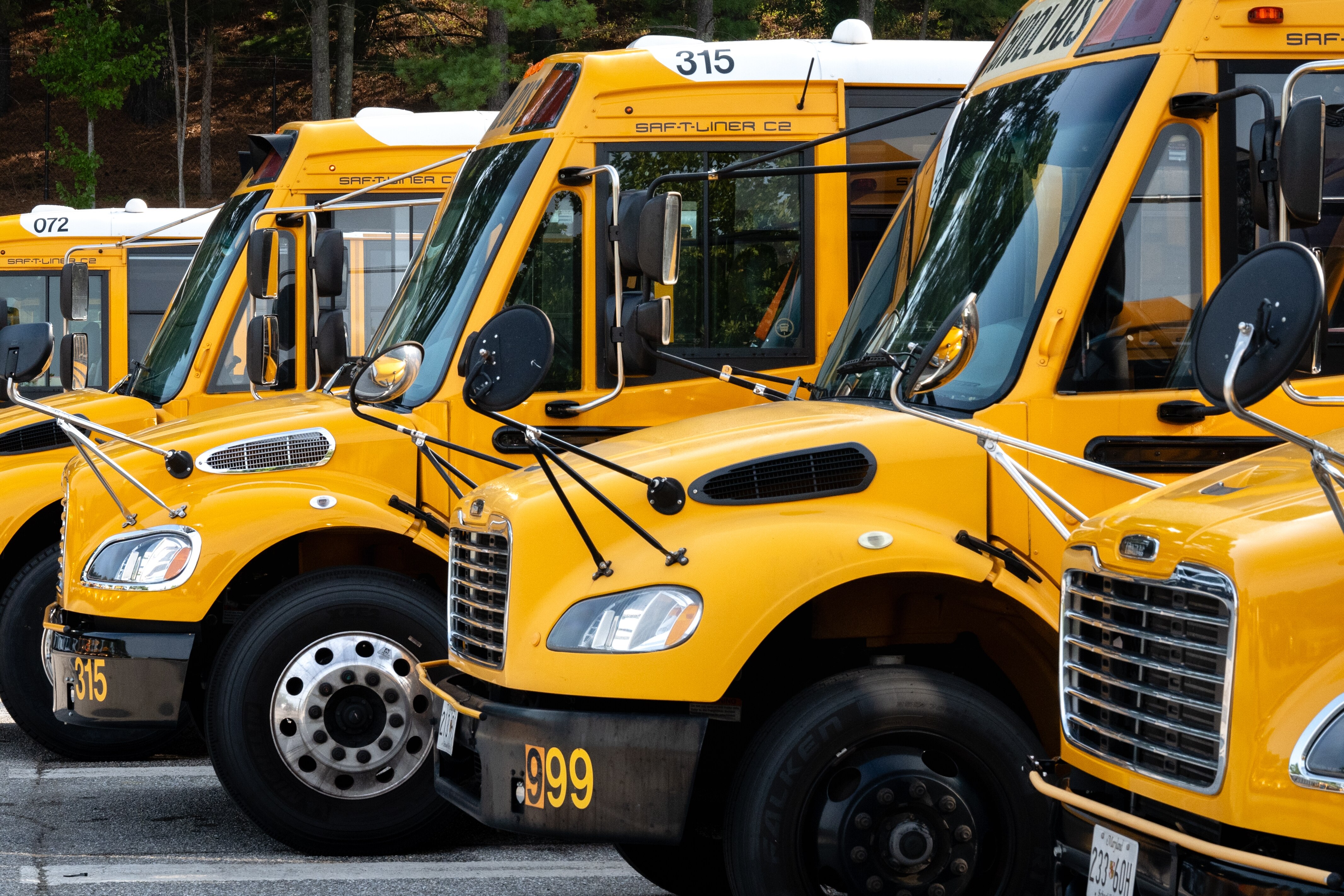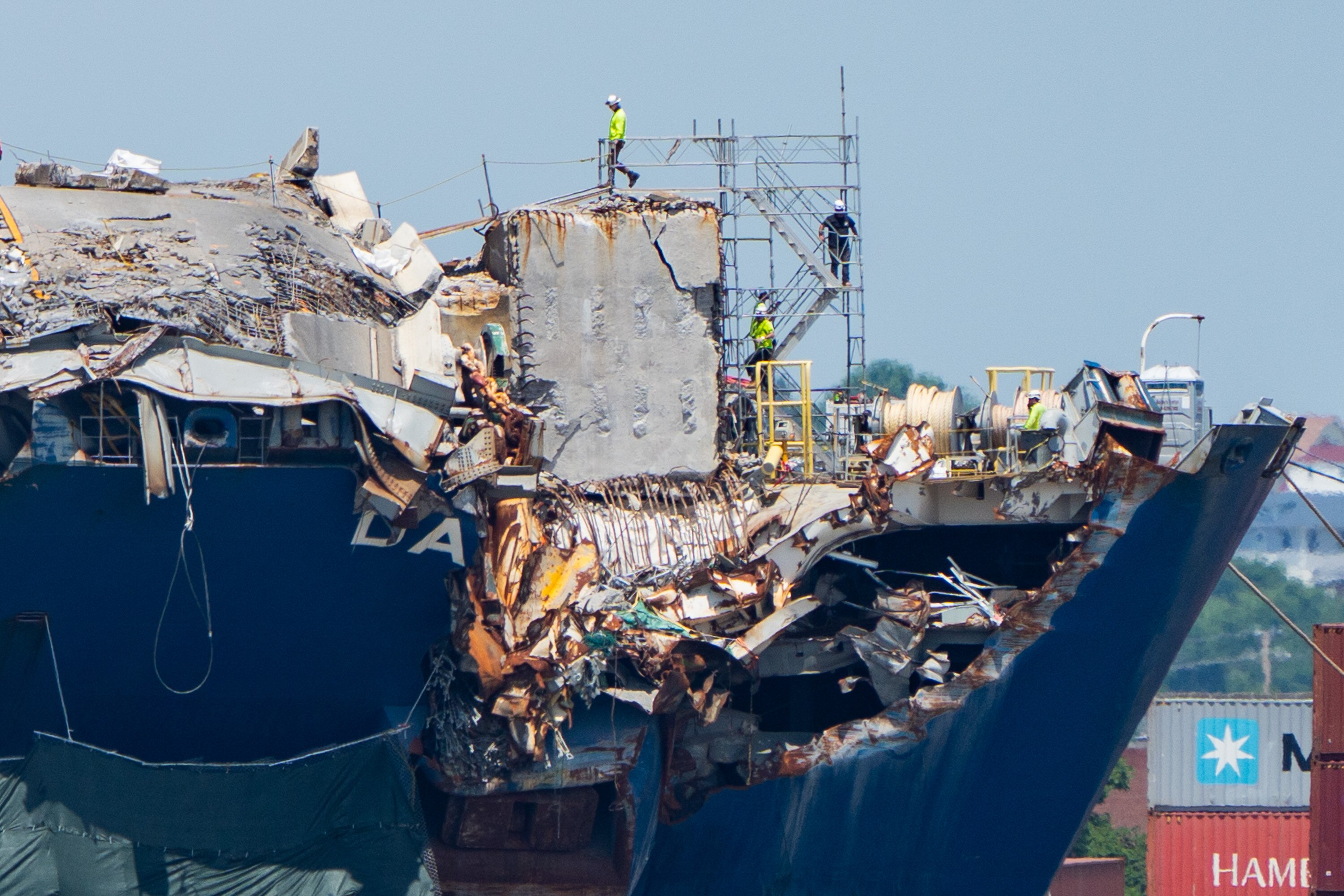CURRENT EDITION: baltimore (none)🔄 Loading BlueConic...EDITION HISTORY: No changes tracked
🔵 BlueConic: ___🔗 Query: ___✏️ Composer: ___
Transportation
Trump extends control over DC by taking management of Union Station away from Amtrak
Transportation Secretary Sean Duffy said Wednesday that his department is taking management of Union Station, the main transportation hub in Washington, away from Amtrak.
As the Baltimore water taxi celebrates 50 years, it looks to a future with expanded service
As the Baltimore water taxi reaches 50 years old, the company running it aims to expand service and add a rideshare app.
BWI is getting new flights to St. Maarten, Cancun
New routes are coming to Baltimore-Washington International Thurgood Marshall Airport for those already dreaming about sunny destinations as summer wraps up.
How Southwest’s new policy will affect plus-size travelers
Southwest Airlines will soon require travelers who don’t fit within the armrests of their seat to pay for an extra one in advance, part of a string of recent changes the carrier is making.
Bus drivers vote to strike in Anne Arundel — and 7,200 students could be out of a ride
Anne Arundel County bus drivers are seeking better pay and more respect on the job. The vote signals they’re willing to walk off the job to get them.
Kilmar Abrego Garcia held in Virginia; Judge wants him to remain in US amid deportation fight
Immigration and Customs Enforcement is currently holding Kilmar Abrego Garcia in a Virginia detention center, as the case of the Salvadoran native reaches yet another crescendo.
After 20K citations last school year, Maryland officials urge drivers to stop for buses
Ahead of the new school year, Maryland drivers are being asked to be careful and stop for school buses.
Permitting process for Baltimore’s Red Line paused by state and federal officials
The permit pause adds new uncertainty for the transit project and will likely further delay the fulfillment of one of Gov. Wes Moore’s marquee campaign promises to build it.
Violators of MTA code of conduct soon could be banned from the transit system, agency says
The MTA policy marks a new step in discouraging crime and promoting a safe environment on transit vehicles, but could prove difficult to enforce across a sprawling network of buses and trains.
Baltimore shipping channel reopens after cargo ship explosion near Key Bridge site
The Fort McHenry Federal Channel in Baltimore reopened after a Monday evening explosion aboard a cargo ship near the site of the Key Bridge.
Steel pieces integral to rebuilding Key Bridge arrive in Baltimore
Beginning in September, engineers will test long, cylindrical columns that will ultimately form the new Key Bridge’s base.
Portion of I-83 to close Sunday night
A section of the I-83, the Jones Falls Expressway, will be closed in both directions between 7 p.m. Sunday and 5 a.m. Monday, the Baltimore City Department of Transportation said.
Ambitious MTA plan would get Baltimore students to class, advocates tell Moore
The BMORE Bus plan, released in June, calls for increasing the frequency of bus service on all MTA routes and adding new, limited-stop express routes, among other improvements.
Proposed Bowie State MARC development could draw big-money partner
The state transportation department has so far budgeted $1.5 million to advance planning for the site.
Amtrak tunnel construction is upending life in a Baltimore neighborhood, residents say
Flooded basements, trash, pests — residents of Midtown-Edmondson say that construction for Amtrak’s Frederick Douglass Tunnel is bringing unwanted additions to the neighborhood.
Baltimore grant ignites 10-year vision for a new Streetcar Museum campus
A new city grant will help the Baltimore Streetcar Museum achieve its future vision that includes refurbishing a nearby former railroad building into a new education space.
All aboard: New Amtrak Acela trains rolling into service late this month
Five of 28 brand-new trains will roll into service on Amtrak's Northeast Corridor on Aug. 28.
They speak for the Gunpowder River. That includes warning about E. coli.
Volunteers with the Gunpowder Riverkeepers are uncovering dangerously high E. coli levels in parts of Baltimore’s beloved river, raising concerns about water safety, pollution and what’s at stake for 1.8 million residents who rely on it for drinking water and recreation.
Owners of cargo ship that crashed into Baltimore bridge sue company that built vessel
The owners of the Dali, the ship that hit the Francis Scott Key Bridge in March 2024, are suing the builders of the vessel for defective design.
Not so fast: Federal officials halt proposed Northeast Maglev train
Citing major environmental and logistical concerns, the Federal Railroad Administration has ended its review of the Northeast Maglev train plan between D.C. and Baltimore.









